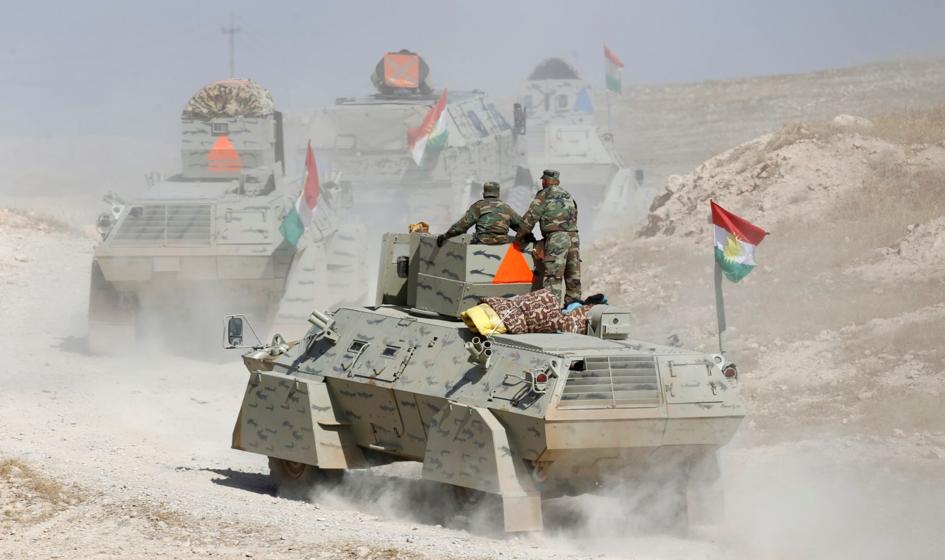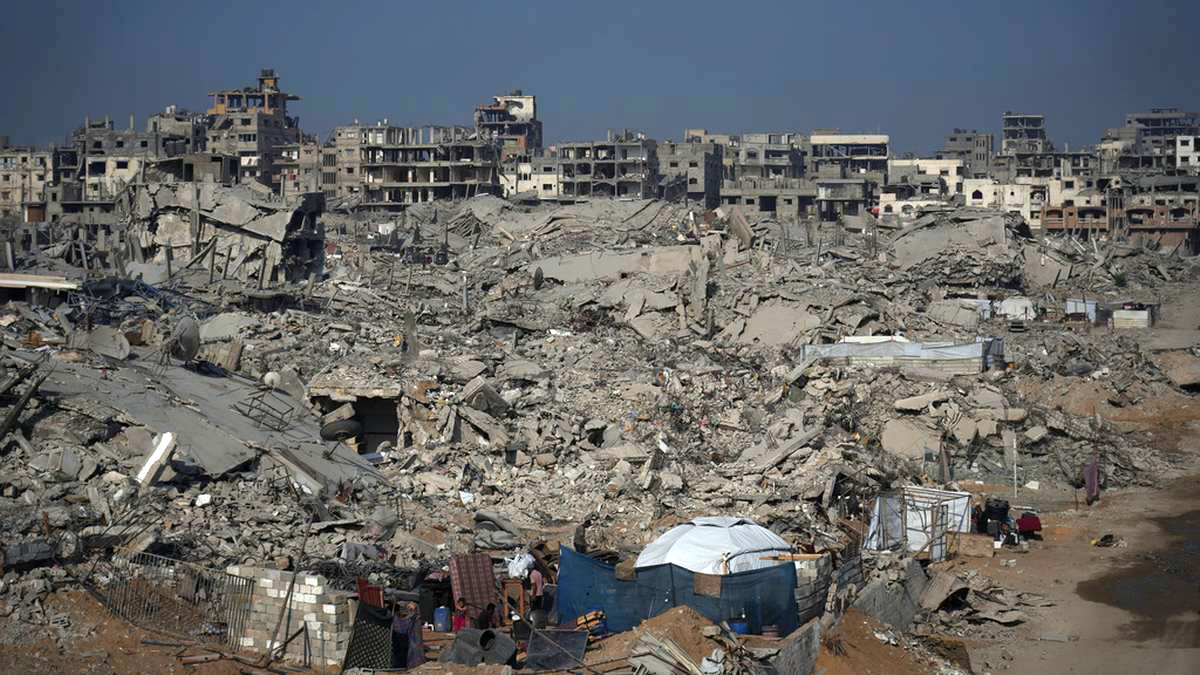A proponent of the maneuvering war, a general with an different polot of thought and undamaged energy – so about Gen. Tadeusz Rozwadowski, after his death in October 1928, wrote the two-week "Szaniec". 96 years later, the head of the Ministry of Defence announced that he would address the president of the Republic of Poland for giving this General "without monuments, with inactive a small memory in the nation" of the Order of the White Eagle.
Marshal Józef Piłsudski, General Tadeusz Rozwadowski, General Kazimierz Sosnkowski, Warsaw 1923.
Deputy Prime Minister Władysław Kosiniak-Kamish during ceremonies related to Witos chokes, which took place on 27 October in Wierzchosławice, announced that he would talk to president Andrzej Duda about giving the Order of the White Eagle General Tadeusz Jordan Rozwadowski. The head of the MON stressed that he was “a general without monuments, with inactive a small memory in the nation” who deserves to celebrate his memory. He recalled that he was a large soldier, the creator of the doctrine of triumph in Warszawski Battle. – a prisoner general, humiliated, led to premature death – he noted and added that his burial place was not known. “We must find this place and bury the hero of Gen. Tadeusz Rozwadowski with dignity,” said Deputy Prime Minister.
"A man of large measure, a hot, military Pole with extended cognition and excellent abilities, the leader bold and well-deserved, 1 of the most prominent participants of the large events to which Poland owes its existence independent, its salvation from the Bolshevik invasion, its limits. He died in severe physical suffering, which preceded and accompanied by many years of moral torture; his death ended the tragedy of man, and connected with the tragedy of the past of the regained Homeland," wrote about Gen. Tadeusz Rozwadowski in the pages of the two-week "Szaniec" Marian Kukiel. In a text published just after the death of Rozwadowski in October 1928, Gen. Kukiel, who at the time was manager of the Czartoryski Museum in Krakow, recalled the biography of the excellent artilleryman and his military achievements.
"A proponent of the maneuvering war, an opponent of the constant defence with insufficient forces, General Rozwadowski, with unspoilt thought and unspoilt energy, tried to implant his ideas into the commanders of the army or groups and their staffs, tried to resurrect the spirit of initiative, awaken the operational thought, as if it had died in the templates of defensive lines, sections, belts of action. His large educational work, included in hundreds of talks and letters, deserves to be recorded and advertised, as historical material, first-class" – characterized Rozwadowski and his actions by Marian Kukiel. He besides added that he played a crucial function in the Warszawski Battle, and mentioned that due to various opinions on the plan of the battle's operational plan, loud arguments arose and burdened the general's fate. "General Rozwadowski considered himself the creator of the plan, giving the Chief Chief the decision. Marshal Piłsudski He stated that the decision was made completely independently of the talks conducted on the subject by Generals Rozwadowski, Sosnkowski and Weygand, that he had come to it with his own thought work," Kukiel recalled.
Marian Kukiel's conviction has been shared by Władysław Kosiniak-Kamish for years. In 2020, during the celebration of the 100th anniversary of the conflict of Warsaw in Tarnów, he said: “We cannot celebrate the century of independency and the 1920 conflict for freedom without restoring appropriate worship and name to all who contributed to the triumph over Lenin’s army. It is simply a shame that in our country there is no monument to him who, at a critical minute in the fight against the Red Army, made all military decisions.” The president of the Polish People's organization then called Gen. Rozwadowski a large architect of the 1920 victory.
Gen. Tadeusz Jordan Rozwadowski was born in May 1866 in Babina. After graduating from the lower junior advanced school in Lviv he began his education at the Cavalry Cadets School in Hranice, Moravia. He studied at the Military method Academy in Vienna from 1882 to 1886. After graduating as the best in his year, he was assigned to the 1st Regiment of Horse Artillery in Krakow and then to a akin unit in Jarosław. In 1889 he got into the War School in Vienna – after 2 years of studies he was promoted to lieutenant rank and directed to the position of assistant staff at the 3rd Cavalry Brigade in Maribor. In 1893, he was assigned to the office of the 31st Infantry Division in Budapest. In September 1894 he married Maria Komorowska in Lviv. From October 1896 he was a military attaché to the Austrian message in Bucharest. As an attaché, in the rank of major, he was sent as an observer to Greece, where he witnessed the defeat of the Greek army in clash with Turkish troops in the conflict of Larissa. The experience gained from this conflict has greatly influenced his views on the conduct of wars.
In 1905 he was promoted to Lieutenant Colonel. 2 years later, he left Bucharest. He returned to Galicia – he served in Stanisławów in the 31st Field Artillery Regiment. He was commander of this unit for 4 years. He was promoted to Colonel in May 1908. In 1913, he was the only elder Polish officers serving in the Austrian Army to cooperate with the shooting movement. "In time he saw in them the bond of the future national army. erstwhile Polish legions were created during the war, many Poles saw in Rozwadowski the right future leader, and sometimes they sought to entrust him with their command. Rozwadowski's individuality, the strength of his patriotic feelings, independency and courage of his courts and actions stood in the way. For the Austrjaks, it was not an appropriate tool," said Marian Kukiel.
In April 1913, Rozwadowski was appointed Commander of the 1st Horse Artillery Brigade, and in May, Major General. In August 1914, he took up the post of commandant of the XII Artillery Brigade in the 12th “Krakow” Infantry Division. In May 1915 he played 1 of the key roles in the conflict of Gorlicami. The General applied a fresh method of utilizing artillery and belongs to the precursors of the alleged mobile fire shield, consisting in the fact that the artillery fire occurred just before the attacking infantry. In turn, in the conflict of Jarosław Rozwadowski with artillery fire stopped counterattacking Russians. Finally, for his achievements at the conflict of Borow (5 September 1914), he received the highest austro-Hungarian discrimination – Order of Maria Teresa. On 1 February 1916 the general was retired – the reason was to criticize the way he treated the Polish and Ukrainian people.
On 28 October 1918, General Rozwadowski took the position of Chief of the General Staff of the Polish Army and began organizing central military institutions and fresh branches of the Polish Army. On 15 November 1918, he resigned, and the reason for his resignation was his dispute with Józef Piłsudski about the way the Polish army was formed. Piłsudski entrusted Rozwadowski with commanding Polish troops in east Małopolska. On the night of 24-25 November, the fresh Chief Commander of the Polish Army in east Galicia came to Colonel Michael Tokarzewski-Karashewicz Lwów, liberated by the troops. Gen. Rozwadowski defended the city bravely until March 1919. The Chief Command even ordered him to break through the siege and retreat to Przemysl. In consequence to a telegram from Warsaw, Rozwadowski wrote: "I made a firm decision to die with the crew alternatively than as ordered by the Chief Command to leave Lviv".
Following the successful defence of Lviv Rozwadowski, the position of Head of the Polish Military Mission in Paris was entrusted. The general advocated the formation of the Polish American Legion alongside the army. His thought was supported by General John Pershing, commander of the American Expeditionary Forces in France. However, Józef Piłsudski was the opponent of these plans. On July 22, 1920, Rozwadowski was appointed head of the General Staff of the Polish Army. He returned to Poland at the most hard minute of the war with Bolsheviks. The general presented Piłsudski with 2 variants of counterattack that could have reversed the destiny of the war. Rozwadowski recommended a limited maneuvering action with simultaneous assault of troops of the reinforced North Front. The Warsaw operation was a large success. After it was finished, political disputes over who had come up with the plan to fight. According to Gen. Maxim Weygand, a battalion observer, the triumph was the consequence of the unparalleled self-sacrifice of the Polish nation and the army and the military genius of Gen. Rozwadowski and his compatible cooperation with the Chief Leader.
During the May 1926 bombing, Rozwadowski was a commander of government troops defending the constitutional order of the state and the principles of the democratic regulation of law. For his attitude, he was illegally imprisoned. For many months, the indictment was delayed. On May 18, 1927, he was released from Antokol prison in Vilnius. A very sick man went to the Lviv military hospital. He besides treated in Jastrzeże Góra. He died on 28 October 1928 in Warsaw in St. Joseph's infirmary on Hożej Street. According to his last will, he was buried in the Lvov Defenders' Cemetery – among his soldiers. Years later, erstwhile the Ukrainian SRR leveled the Lviv necropolis with the ground, Polish patriots moved the body of Gen. Rozwadowski to another place to rescue the remains of Polish heroes. Unfortunately, it is not known. In 2013, the Council for the Protection of the Walk and Martyrdom officially informed that the general's remains in the 1970s were most likely transferred to the Łychczak cemetery.
The Order of the White Eagle, of which the Deputy Prime Minister Władysław Kosiniak-Kamysz postulates General Tadeusz Rozwadowski, is the oldest and highest state discrimination of the Republic of Poland given for outstanding civilian and military merit. It doesn't divide into classes. It is awarded to the most outstanding Poles and the highest ranking representatives of another countries. It was established in 1705, renovated in 1921 and restored – by the Act of 16 October 1992 on Orders and Awards – in 1992. After the restitution of the order, Pope John Paul II was awarded first.









